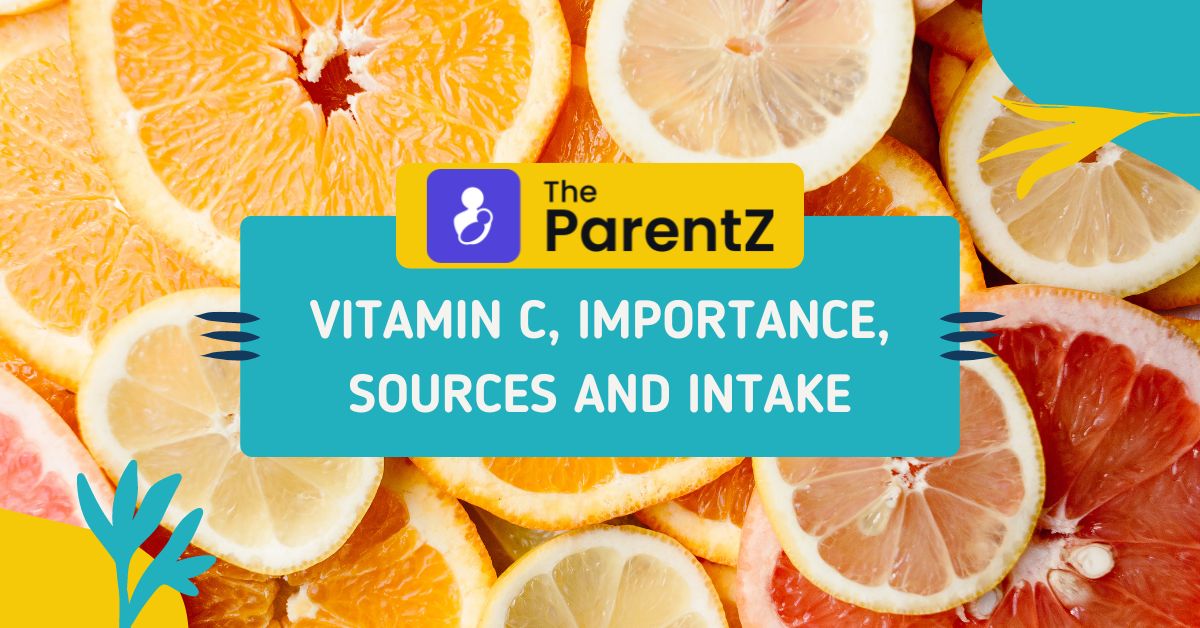What is Vitamin C?
Vitamin C is also known as ascorbic acid. It is a type of water soluble vitamin needed by the baby’s body for proper growth and functioning. Vitamin C also functions as an antioxidant and protects the body of your child from excessive oxidative damage. Vitamin C is an essential nutrient for the body. This means that the body of your child cannot produce Vitamin C and it has to be consumed from external sources.
What does Vitamin C do?
Vitamin C is essential for proper growth and functioning of the child’s body. It is needed by the body of your child to form and repair some cells such as the red blood cells, bones and tissues. It also helps in improving the absorption of other nutrients such as iron from food. Vitamin C plays a major role in maintaining a healthy immune system in your child’s body and keeping your child safe from infections.
What are the sources of Vitamin C?
Vitamin C is present in breastmilk, fruits and vegetables. Generally, red or orange coloured fruits and vegetables are a good source of Vitamin C. Some food which are high in Vitamin C are:
- guava
- orange juice
- Red bell pepper
- papaya
- kiwi
- broccoli
- strawberries
- mango
- raw tomato
- spinach
How much Vitamin C does my child need?
The Vitamin C requirement of your child depends on the age of the child. Babies and pubescent teenagers require the maximum amount of Vitamin C as they are growing at a very fast pace. Infants and babies get maximum of their Vitamin C requirement from breast milk itself. Mother’s who are breastfeeding have an increased requirement of Vitamin C which amounts to 120mg/day. For children, requirement per day according to age are:
- 0–6 months: 40 mg
- 6–12 months: 50 mg
- 1 to 3 years: 15 mg
- 4 to 8 years: 25 mg
- 9-13 years: 45mg
- >14 years boy: 75mg
- >14 years girl: 65mg
What should I know as a parent?
- You should ensure that your child is getting the required daily dose of vitamin C. It is an important nutrient which helps achieve optimal health and development.
- You should ensure that your child has a balanced diet with enough vitamin C-rich foods.
- As a parent, you should always remember that your child should get the maximum nutritional requirement from natural food sources instead of supplements.
- If your child is a fussy eater, does not tolerate the vitamin rich food or for any other reason you have a problem getting your child to eat the right foods, supplements may be considered.
- You should always make sure to consult a medical professional before starting your child on any supplement.
- Sometimes parents may feel like giving a Vitamin C supplement to their child independent of medical opinion as it is easily available as an over the counter drug. This should be strictly avoided.
- Excessive consumption of Vitamin C is extremely rare. This is possible in cases of overt supplementation along with a rich diet. This can lead to an overdose which causes specific problems.
- Overdosage of Vitamin C can manifest as a couple of signs and symptoms which include diarrhoea, nausea, vomiting,stomach cramps, abdominal pain, headache, insomnia, fatigue, and joint and muscle pain.
- You should immediately consult your child’s doctor is the above mentioned symptoms are present in your child.








Be the first one to comment on this story.